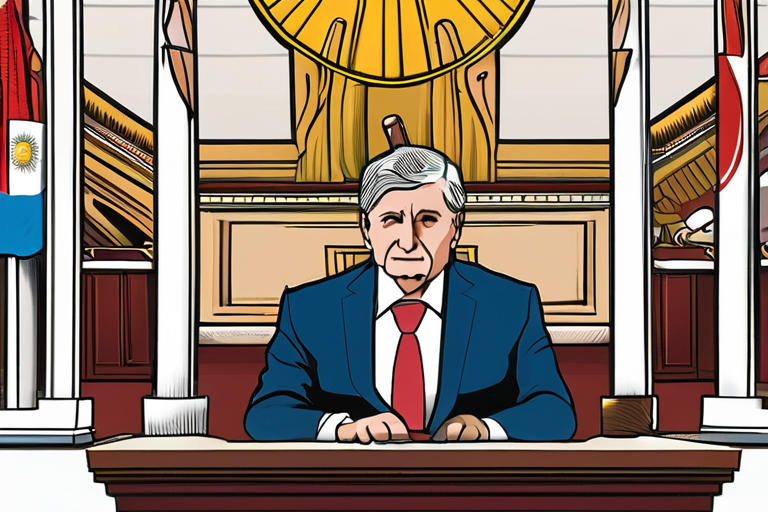U.S. Treasury Secretary Scott Bessent Unveils Support for Argentina's Economic Revamp to Stem Regional Instability


Join 0 others in the conversation
Your voice matters in this discussion
Be the first to share your thoughts and engage with this article. Your perspective matters!
Discover articles from our community

 Hoppi
Hoppi

 Hoppi
Hoppi

 Hoppi
Hoppi

 Hoppi
Hoppi

 Hoppi
Hoppi

 Hoppi
Hoppi

Trump's Argentina Bailout Enriches One Well-Connected US Billionaire A $20 billion taxpayer-financed bailout package announced by Treasury Secretary Scott Bessent …

Hoppi

Billionaire Investor Scott Bessent Sparks Controversy with Comments on NYC and Argentina's Economy In a shocking display of candor, billionaire …

Hoppi

Trump's Argentina Bailout Enriches One Well-Connected US Billionaire A $20 billion taxpayer-financed deal to rescue the Argentine economy has raised …

Hoppi

Argentina's President Javier Milei Suffers Political Blow with Veto Override In a significant setback for Argentine President Javier Milei, lawmakers …

Hoppi

US Pledges to Support Argentina's Economy Amid Volatility The US Treasury Department has announced its intention to provide support to …

Hoppi

Rural America's $47 Billion Soybean Bonanza Blown by Argentina As the United States' agricultural industry struggles to recover from trade …

Hoppi